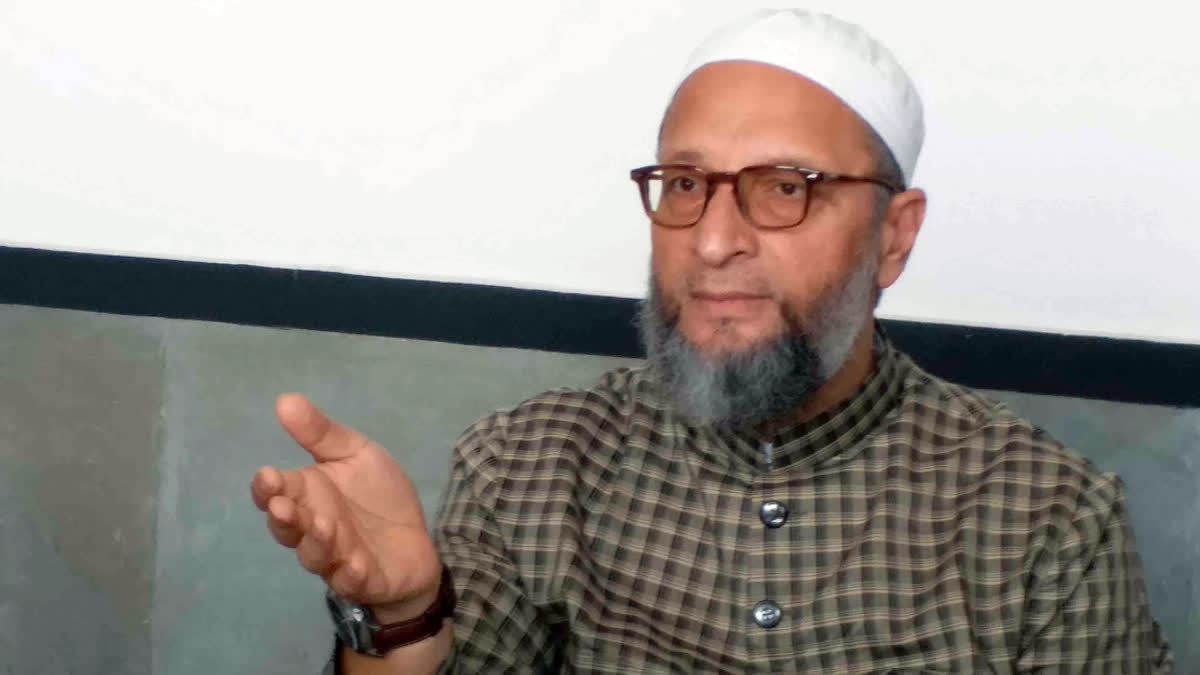New Delhi: The leader of All India Majlis-e-Ittehadul Muslimeen (AIMIM), Asaduddin Salahuddin Owaisi, has filed an application in the Supreme Court seeking a direction to stay the implementation of the Citizenship Amendment Act, 2019 and the Amendment Rules, 2024.
The plea, filed through advocate M R Shamshad, said: “the Amendment Act has an unholy nexus with the National Register of Citizen ‘NRC’ exercise that has been concluded in Assam and is sought to be initiated in the rest of the country”.
“The immediate consequence of operationalization of the Amendment Act, if the same is not stayed by this court, would be that all non-Muslims who have been left out / excluded from the NRC in Assam would be given the opportunity to apply for citizenship under the 2024 Rules leaving only Muslims who have been left out/ excluded from the NRC to the mercy of the executive to face action consequential to loss of citizenship”, added the plea.
The plea stressed that the evil posed by the CAA is simply not one of under-inclusion of grant of citizenship but is very blatantly the isolation of a minority community to selectively take action against them consequential to denial of citizenship.
The plea said any such action taken selectively against Muslims who have been excluded / left out of NRC would be onerous, likely irreversible and completely unconstitutional. “As such, before this Court has the opportunity to adjudicate the constitutional vires of the Amendment Act, this is sufficient ground by itself for this Hon’ble Court to grant stay of the 2024 Rules / stay against implementation of the Amendment Act”, said the plea.
The plea added that the direct effect of this Amendment Act as operationalised by the 2024 Rules is that of offering by the State to any person from Afghanistan, Bangladesh and Pakistan professing the Muslim faith, who is desirous of obtaining Indian citizenship, an allurement/ incentive to change his / her faith prior to applying for citizenship to avail of the relaxed requirements for citizenship. “As such, this is ex facie unconstitutional as being violative of Article 14 and 25, and its effect, if it is allowed to be operationalized, would be irreversible”, it said.
The apex court is scheduled to hear a batch of pleas seeking staying the recently-notified Citizenship Amendment Rules on March 19.
Meanwhile, Kerala government has also approached the Supreme Court seeking an interim injunction to restrain the Centre from implementing the Citizenship Amendment Act, 2019 and its rules, which were notified recently.
The state said it is submitted that the Amendment Act is a colourable legislation; in as much as there is a constitutional prohibition to make the said legislation in violation of the secular nature of the Constitution; but despite the same, the legislature has enacted it. “It is submitted that even though the statement of objects and reasons of the Citizenship Amendment Bill referred to persecution of the minorities in the three countries of Pakistan, Afghanistan and Bangladesh, the Impugned Amendment Act does not restrict the class of persons to whom the benefit of the amendment has been extended to persons who are in fact persecuted or claim to have been persecuted”, said the plea.
The plea said that there is no rationale in grouping together for the purposes of the Impugned Amendment Act and Rules and Orders the three countries of Pakistan, Afghanistan and Bangladesh. “Such grouping is not founded on any rationale principle justifying a separate special treatment for the irrationally chosen class of religious minorities facing persecution on the basis of religion therein”, it added.
The plea said there is no rationale in not extending the rights conferred to a class of minorities from Pakistan, Afghanistan and Bangladesh to religious minorities belonging to the said countries of Sri Lanka, Myanmar, Nepal and Bhutan. “The arbitrary classification of the aforesaid three countries of Pakistan, Afghanistan and Bangladesh without any rationale or standard principles constitutes manifest arbitrariness and violates Article 14 of the Constitution”, it added.
“While the Hindus from Pakistan, Afghanistan and Bangladesh are covered by the Impugned Amendment Act, the defendant did not consider the issues of the Hindus, primarily of Tamil descend, in Sri Lanka and Hindu Madhesis in Terai of Nepal, whose ancestors migrated to Sri Lanka and Nepal respectively in the eighteenth Century from the then British India”, it added.
The plea said Shias are reportedly subjected to persecution in Pakistan, Afghanistan and Bangladesh and reportedly, Hazaras are historically the most restrained ethnic minority group in Afghanistan. “If the object of the Impugned Amendment Act is to protect the ‘minorities who faced religious persecution in Afghanistan, Pakistan and Bangladesh’, then, the Ahmaddiyas and Shias from these countries are also entitled to treatment equal to that being now extended to Hindu, Sikh, Buddhist, Jain, Parsi and Christian communities”, said the plea.
The plea submitted that all persecutions are not solely based on religious grounds alone and are for varied reasons like ethnicity, linguistics etc. “They do not cover the persecutions on the grounds of ethnicity, linguistics etc. even in the said class of three countries. They do not cover the ethnic issues of Balochs, Sindhis, Pakthuns and Mohajirs in 12 Pakistan and the Biharis in Bangladesh”, it added.
Read More



